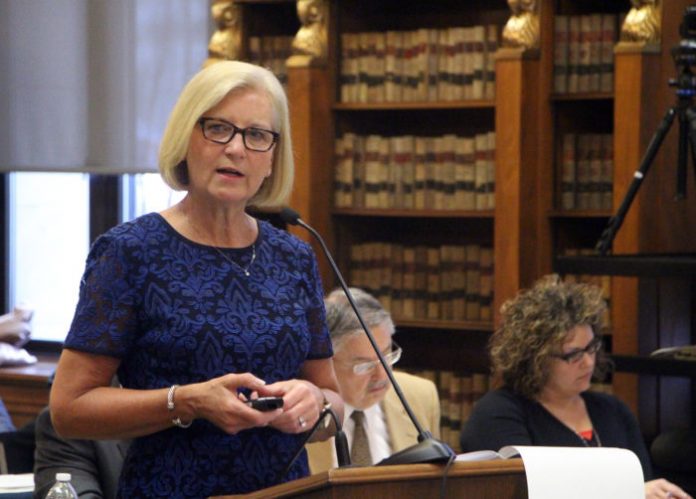
By Abrahm Hurt
TheStatehouseFile.com
INDIANAPOLIS — Indiana has a higher number of babies’ umbilical cords testing positive for opiates than the national average.
Through a program in which nearly 3,000 cords from 21 hospitals were examined, data showed that one in seven—or 14.37 percent—tested positive for opiates. The national average is 10.8 percent.
In January 2016, the Neonatal Abstinence Syndrome pilot program was created to study the prevalence of NAS through voluntary screenings with hospitals. The program started off with four sites and has now expanded to 29 hospitals.
“Neonatal Abstinence Syndrome is basically when a baby is born to a mom who has been using substances,†Dr. Kris Box, state health commissioner, said Wednesday during a meeting of the Commission on Improving the Status of Children in Indiana. “Often times that is opiates, and after that baby is separated from the mom, the baby goes through a series of withdrawal symptoms associated with not having that drug in its system any longer.â€
The commission was reviewing a range of topics that affect children, including the impact of drug addiction on babies.
Babies with NAS can suffer from high-pitched crying, irritability, feeding difficulties and a failure to thrive.
While the long-term effects of NAS remain largely unknown, some studies have shown it can result in mental and behavioral disorders, poor national test scores and lower IQs.
Of the 19,048 births in 2017 that occurred in the 21 hospitals that participated in the current data screening, 2,953 umbilical cords were tested and nearly 40 percent of those cords tested positive for a substance. Around 11 percent of the cords that tested positive were also given a diagnosis of NAS.
Box said the number of opioid cases was not the only concern found in the data. Indiana also had a higher percentage of babies testing positive for barbiturates and cocaine.
“I think it’s also really important to note that 14.4 percent of our babies’ cords tested positive for opiates and greater than 18 percent of our babies’ cords tested positive for marijuana,†she said. “That’s why I have extreme concerns about some of the marijuana legislation that’s going on.â€
Legislation that would have approved marijuana for medical needs failed in the first half of the session. However, the Indiana Senate has approved its version of legislation that would legalize the sale of CBD oil, or cannabidiol, for use by all Hoosiers.
Senate Bill 52 would legalize CBD oil that contains less than 0.3 percent THC, the substance in the plant that gives marijuana users a high. Legislation passed in the 2017 session limited the use of CBD oil to patients with epilepsy.
Box said there have been studies that confirm babies exposed to marijuana suffer from impulsive behavior, hyperactivity, anxiety, depression, and deficits in learning and memory.
Because the program is voluntary and not statewide, Box said she believed the numbers of NAS were actually underrepresented across the state.
The Commission on Improving the Status of Children in Indiana is a multi-branch statewide commission that looks to improve the status of children in Indiana. The commission was created in 2013 under Senate Bill 125 and signed into law by former Gov. Mike Pence.
FOOTNOTE: Abrahm Hurt is a reporter for TheStatehouseFile.com, a news website powered by Franklin College journalism students.




